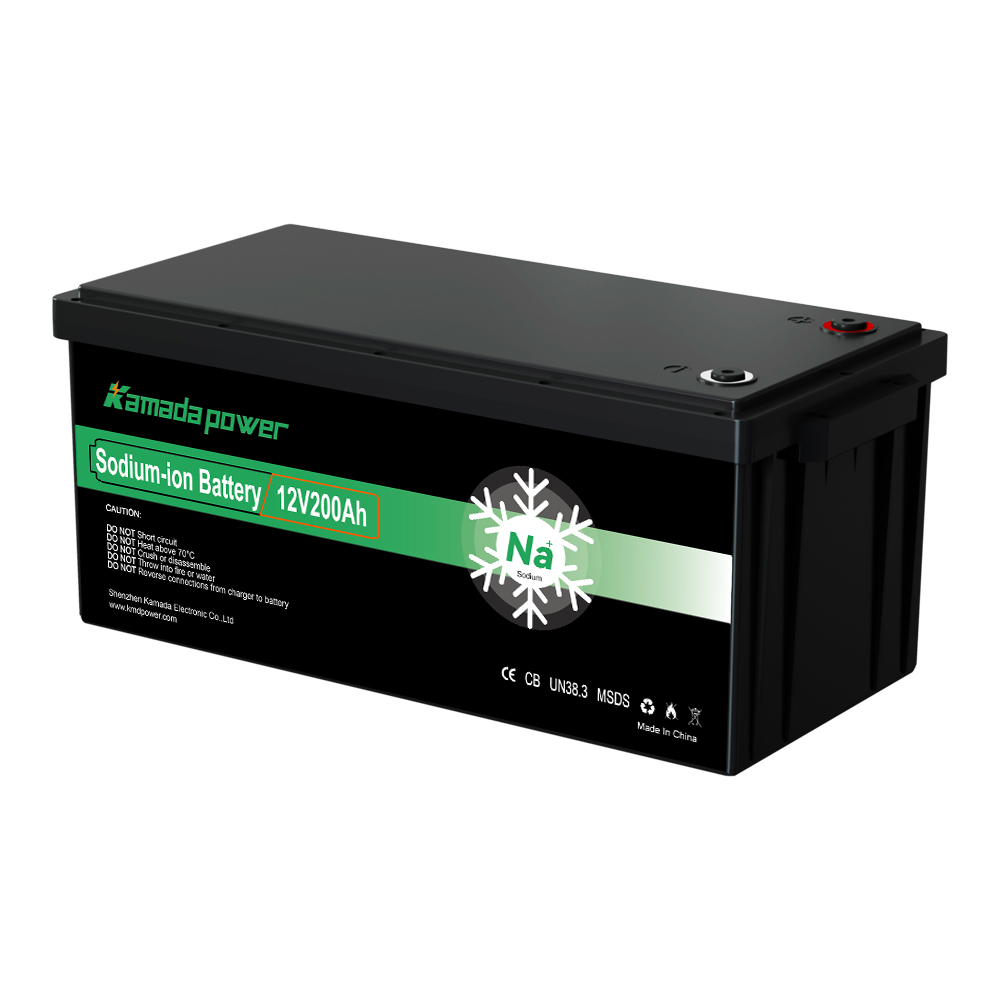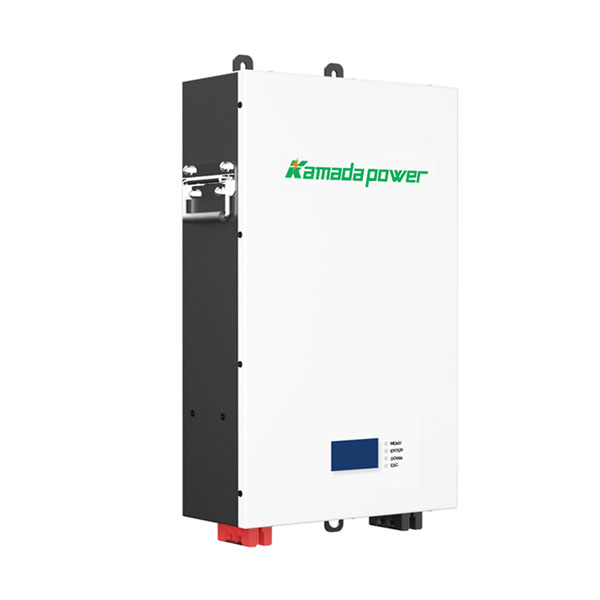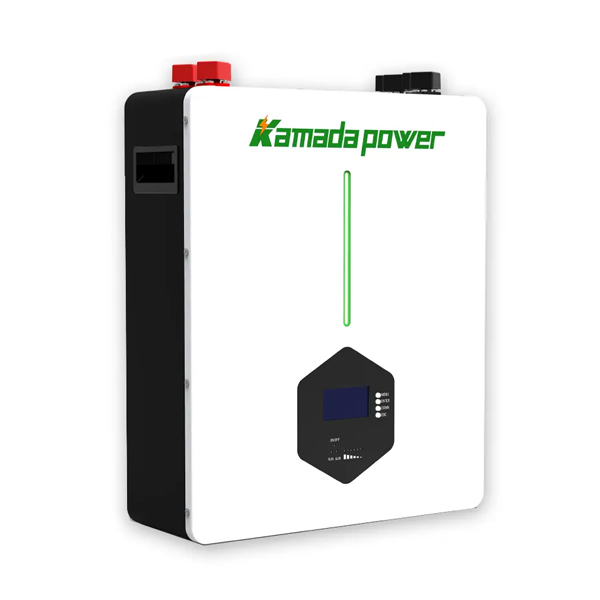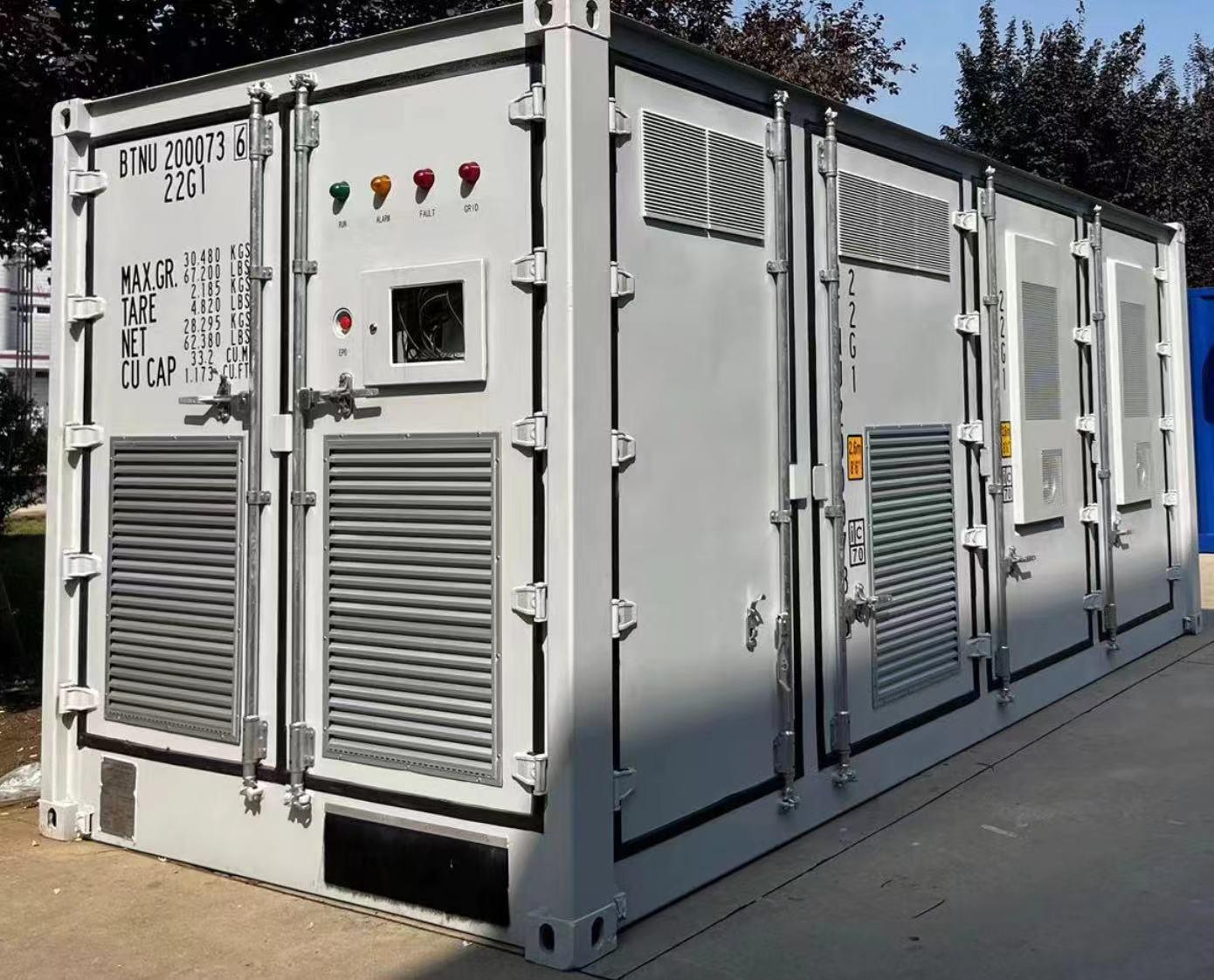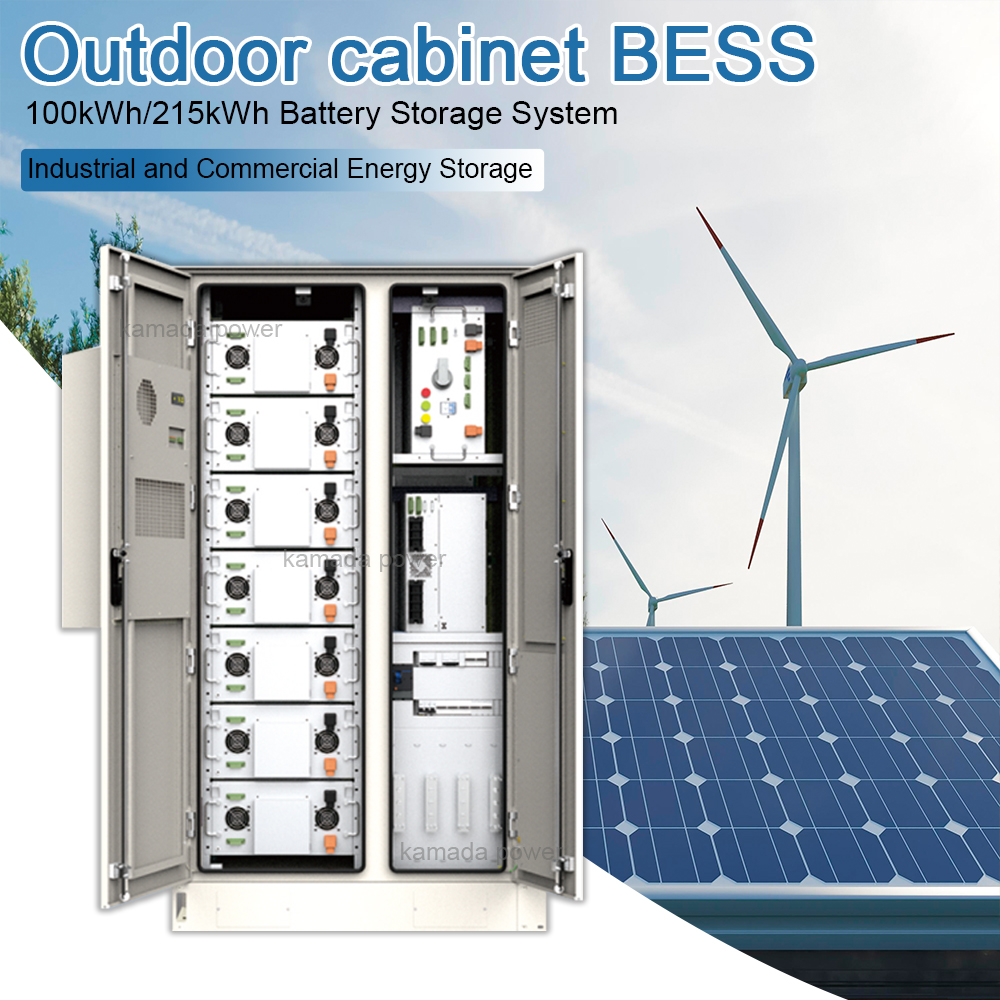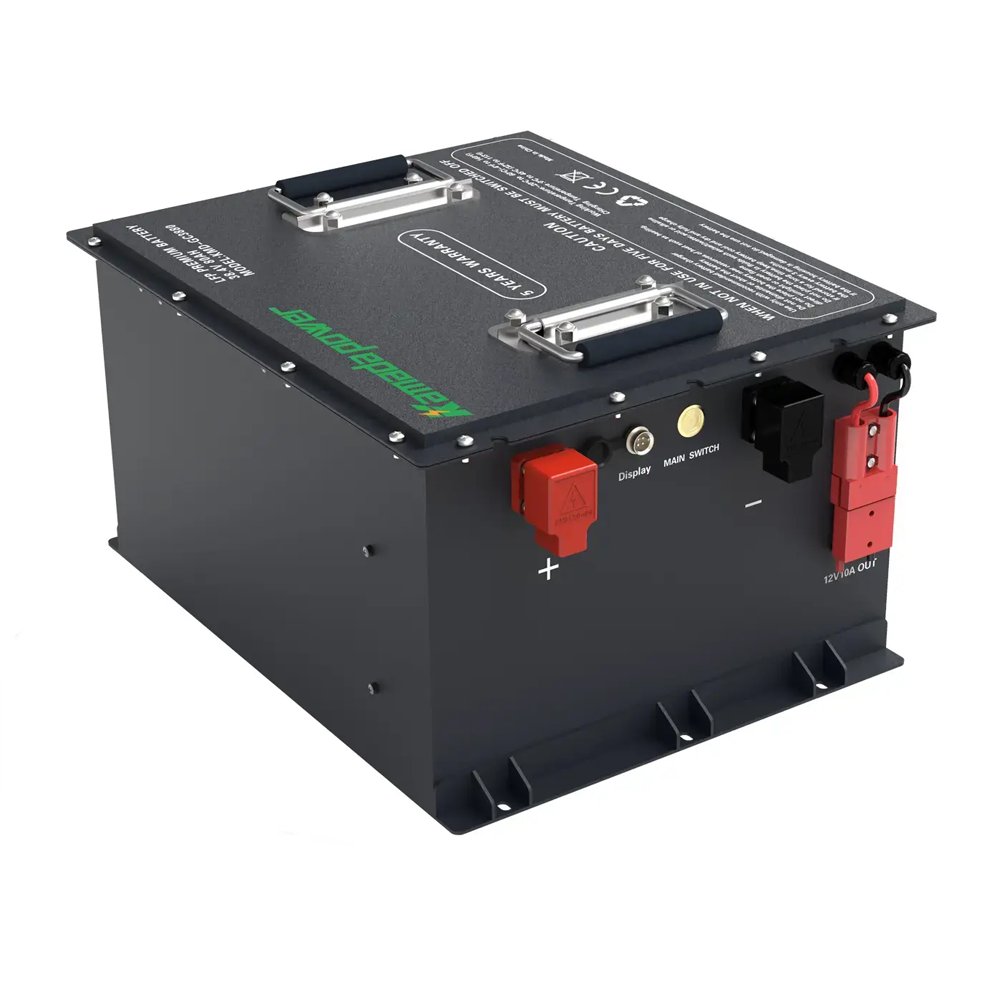Running a business means watching energy use closely. Costs are up, and things like solar panels and battery storage are becoming common. But honestly, all the energy words can be confusing. Two terms people often mix up are MW (megawatt) そして MWh (megawatt-hour).
They sound alike, but they measure different things. Getting them wrong isn’t a small deal; it can cause expensive mistakes with power bills, picking the right solar size, or buying batteries. This mix-up can hurt your budget and keep things from running smoothly.
As someone who helps businesses figure out commercial battery energy storage systems, I want to make this clear. This article explains MW and MWh simply, with real examples. We’ll look at なぜ knowing this difference is super important for あなたの business and how it helps you make smarter choices that save money on energy.
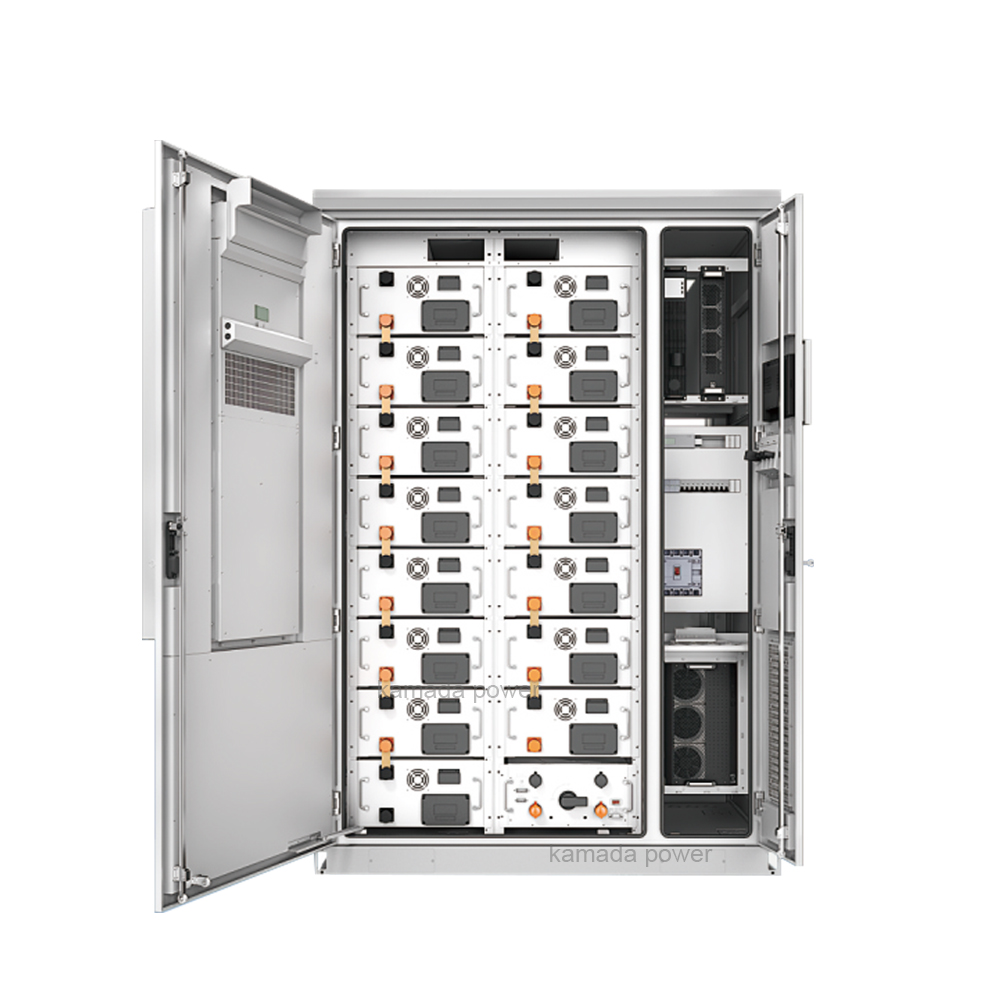
kamada power 215kwh commercial energy storage systems
How Do You Measure Energy?
Imagine filling a big tub with a garden hose. You’d notice two main things:
- How fast water comes out (like gallons each minute).
- について total amount of water in the tub after a while (total gallons).
Electricity is kind of like that. We need to measure:
- について スピード energy is used or made right now. This is Power.
- について total amount of energy used or made over time. This is Energy.
The basic unit for Power is the Watt (W). The basic unit for Energy is the Watt-hour (Wh).
For businesses, these units are usually too tiny. So we use bigger ones:
- Megawatt (MW) for Power (That’s 1 million Watts)
- Megawatt-hour (MWh) for Energy (That’s 1 million Watt-hours)
“Mega” just means a million. Getting MW and MWh down is key.
What is MW?
MW stands for Megawatt. It’s a unit for Power.
Power (MW) is the スピード energy is used or created 只今. Think of it like your car’s speedometer. It shows your current speed, not how far you’ve driven.
- 1 MW = 1,000 kilowatts (kW)
- 1 MW = 1,000,000 Watts (W)
Why MW Matters to Your Business:
- Peak Demand: The highest point your electricity use spikes (in kW or MW) often adds extra charges from the utility company (called demand charges). Keeping this peak MW low saves cash.
- Equipment Sizing: MW ratings tell you how much power big machines need to run or the most a generator or solar system can put out 一時に.
- Battery Speed: A battery’s MW number shows how fast it can take power in (charge) or send it out (discharge). A higher MW means quicker power delivery when you need it.
Simple Analogy: MW is like the 幅 of a pipe – how much water can flow through 只今.
What is MWh?
MWh means Megawatt-hour. It’s a unit for Energy.
Energy (MWh) is the total amount of electricity used or made over time. It’s like your car’s odometer. It shows the total distance you’ve traveled.
- 1 MWh = 1,000 kilowatt-hours (kWh)
- 1 MWh = 1,000,000 Watt-hours (Wh)
How MWh is Calculated: It’s simple multiplying:
Total Energy (MWh) = Power (MW) x Time (hours)
例 Using 0.5 MW of power steadily for 4 hours uses up 0.5 MW * 4 hours = 2 MWh of energy.
Why MWh Matters to Your Business:
- Electricity Bill: The largest part of your bill is usually for the total MWh (or often shown in kWh) you used – that’s the volume of energy that flowed to you.
- Solar Production: MWh tells you the total energy your solar panels made, which shows your savings.
- バッテリー容量: A battery’s MWh rating is like its “fuel tank” size – the total amount of energy it can hold.
Simple Analogy: MWh is like the total volume of water that passes through the pipe over an hour. It depends on the pipe’s width (MW) and how long the water ran (time).
What is the difference between a megawatt and a megawatt hour?
This is the most important part. They’re easily mixed up but are very different:
- MW (Megawatt) = POWER: How fast energy moves. It’s a measure at one exact moment. (Like speed: miles per hour).
- MWh (Megawatt-hour) = ENERGY: について total amount delivered over time. (Like distance: total miles).
Think about charging an electric vehicle (EV):
- The charger’s kW (related to MW) rating tells you how fast the battery gets charged.
- The battery’s kWh (related to MWh) capacity tells you how far the vehicle can travel on one full charge.
This table shows the main points:
| 特徴 | MW (Megawatt) | MWh (Megawatt-hour) |
|---|---|---|
| Measures | Power (Speed of energy) | Energy (Total amount) |
| Think of it as | Speed (e.g., MPH) | Distance (e.g., Miles Traveled) |
| Key Question | How much power needed 只今? | How much energy used/stored in total? |
| Business Impact | Affects extra demand charges, machine size | Affects total bill cost, backup time |
| Battery Spec | Max charge/discharge スピード | Total energy storage size |
必要なのは パワー (MW) to make things work, but you pay based on the energy (MWh) you use. Knowing both helps you save money.
How Many kWh in 1 MWh?
Your electric bill likely uses kWh (kilowatt-hours). This is just a smaller way to talk about energy amount.
Changing between them is simple:
- “Kilo” means thousand (1,000)
- “Mega” means million (1,000,000)
だから 1 MWh = 1,000 kWh
Picture it like this: 1 big barrel (MWh) holds the same amount as 1,000 milk jugs (kWh). MWh is used for large amounts so the numbers aren’t so huge (like saying 5 MWh instead of 5,000 kWh).
Uses of Megawatt Hour
MWh is the usual way to track big amounts of energy. Your business will see it when:
- Planning Energy Costs: The total MWh you use helps figure out future bills.
- Measuring Renewables: Tracking MWh from solar or wind shows how well they’re working and how much they save you.
- Sizing Batteries: MWh tells you how much energy a battery can store for backup power or shifting energy use.
- Looking at Big Contracts: Large energy deals (like Power Purchase Agreements) often price things per MWh.
- Planning Projects: Figuring out MWh made or saved is key to see if big energy projects are worth the money.
- Reporting on Green Goals: Tracking renewable MWh helps show you’re meeting environmental targets.
Feeling comfortable with MWh helps you manage your energy plan smarter.
Producing Megawatt Hour
MWh must be made by some power source (in MW) running for a certain time:
- Power Plant: A plant that makes 100 MW of power running for 1 hour makes 100 MWh.
- Solar Array: A solar system that can make 0.5 MW running well for 5 hours makes 2.5 MWh (0.5 MW times 5 hours).
- 発電機: A generator that makes 1 MW of power running for 3 hours makes 3 MWh.
- Battery Discharge: A 2 MWh battery sending out power at 0.5 MW gives power for 4 hours (0.5 MW times 4 hours equals 2 MWh total sent).
Making MWh needs you to have power available (MW) and use it over time (hours).
What can one megawatt-hour power?
1 MWh is a lot of energy! Here’s what that means for a c&i energy storage systems business:
| Business Task / Equipment | Typical Power Need | Approx. Runtime on 1 MWh (1000 kWh) | 備考 |
|---|---|---|---|
| Large Office (AC, Lights, etc.) | Around 150 kW (0.15 MW) | About 6.5 hours | Changes a lot based on size & how well it works |
| Refrigerated Warehouse | Around 200 kW (0.2 MW) | About 5 hours | Really depends on how well insulated & how often doors open |
| Small Manufacturing Line | Around 300 kW (0.3 MW) | About 3.3 hours | Very different based on the exact machines used |
| Data Center (Smaller Area) | Around 100 kW (0.1 MW) | About 10 hours | Cooling uses a lot of energy |
| Powering Around 330 US Homes | Around 1 MW (average) | 1時間 | Based on what a typical home uses |
| Level 3 EV Fast Charger | Around 150 kW (0.15 MW) | Gives about 6.5 hrs of total charging | Enough energy for maybe 15-20 car charges |
(These are best guesses; how much is actually used changes based on the specific machines, how they’re used, how well they work, and the situation.)
This shows 1 MWh can keep big business parts running for hours. This points to why batteries storing MWh matter.
How Big is a 1 MWh Battery?
What does a battery with 1 MWh look like? It’s not small.
- Containerized: Most batteries this big for businesses come in large boxes, like shipping containers or small building-like units.
- Typical Size: A 1 MWh system often fits in a container like a 20 or 40-footer, similar size to the back of a semi-truck.
- Heavy: They weigh many tons and need a strong base, like concrete.
- Inside: They hold the battery parts, systems to control heat (like AC), fire safety gear, and electronics to change the power type (inverters).
The exact size changes with the battery type and its power (MW), but you’ll need a dedicated spot for it.
How Long Can a 1 MWh Battery Last?
This depends totally on how fast you pull power out (the MW number you need).
Use this simple math: How Long It Lasts (Hours) = Energy Stored (MWh) / Power Needed (MW)
So, for a battery holding 1 MWh:
- If you need 1 MW: It lasts 1 Hour (1 MWh divided by 1 MW)
- If you need 0.5 MW: It lasts 2 Hours (1 MWh divided by 0.5 MW)
- If you need 0.25 MW: It lasts 4 Hours (1 MWh divided by 0.25 MW)
Why This Matters for Planning:
- Backup: If your key systems need 0.2 MW, a 1 MWh battery gives you about 5 hours of power (1 divided by 0.2).
- ピーク・シェービング To lower your peak power use by 0.5 MW for 2 hours, you need 1 MWh of battery size (0.5 MW times 2 hours).
MWh is the total energy. The MW you need tells you how long that energy will last. Batteries are often talked about by both numbers (like a “1 MW / 4 MWh” system, which means it can give 1 MW for 4 hours).
How Many Solar Panels in a 1 MW Solar System?
Big solar farms are measured by their top power (MW). How many panels does that take?
- Typical Panel Power: Today’s solar panels are often 400W to 550W or more. If we use 500 Watts (that’s 0.0005 MW) per panel:
- 計算:
- 1 MW = 1,000,000 Watts
- Panels needed = 1,000,000 Watts / 500 Watts per panel = 2,000 panels
So, a 1 MW system usually needs around 1,800 to 2,500 panels, depending on how good the panels are.
- Space Needed: A 1 MW system placed on the ground needs 4 to 6 acres. On a roof, you need a very large, open space.
Remember: 1 MW is the most power it can make at one sunny moment. The actual total energy (MWh) made in a year depends on the sun, weather, and other things.
Increase installed solar capacity and maximize megawatts in your solar farm
Getting the best results from solar means making its power output (MW) as high as possible. More MW ability means making more total energy (MWh), leading to bigger savings. Good ways to do this are:
- Use Panels That Make More Power: Get more MW from the same amount of space.
- Design It Right: Pointing panels the best way and avoiding shade boosts the top MW power.
- Think About Trackers: Panels that follow the sun can make a lot more MWh each day.
- Keep Panels Clean: Dirt lowers the MW output; cleaning helps keep performance high.
- Watch How It’s Working: Find problems with panels or parts quickly to keep making peak MW power.
- Use Good Parts: Efficient, trustworthy inverters lose less energy.
Making sure the top MW potential is as high as possible helps make the most total MWh over time.
Are all megawatts created equal?
In theory, yes. But for your commercial and industrial energy storage business? No. Where the MW comes from and if you can count on it matters a whole lot.
- Grid MW: Usually dependable, good quality. Costs money, might have those extra demand charges, and the source might not be clean.
- Solar/Wind MW: Clean, cheaper over time. But they stop and start (depending on the weather). They aren’t always there when you need power.
- Generator MW: You can turn it on when you want it (this is called dispatchable). But it burns expensive, dirty fuel and needs fixing sometimes.
- Battery MW: Power is instant, reliable up to its limit, clean right where it is, and great for keeping power quality steady. But it runs out when its stored MWh is gone.
Think About This for Business: If you need power all the time, just using solar might not be enough. Often, using solar (for low-cost MWh) with batteries (for reliable MW) works best together. The quality and if it’s available for the MW source is really important.
Are all megawatt-hours created equal?
Like with MW, the answer is not totally. 1 MWh is a set amount of energy, but what it’s worth changes:
- Source (Is it green?): An MWh from solar is better for the planet than one from burning coal. “Green MWh” helps meet goals for being good to the earth.
- Value Based on Time: Using an MWh when power prices are highest costs more. Using a battery to save solar MWh (made when the sun is strong) and using it when prices are high later in the day saves money (this is called Time-of-Use arbitrage).
- Can You Control It?: Battery MWh is something you control – you can use it いつ it helps the most (for backup, cutting peak use). Grid or direct solar MWh isn’t as flexible.
- Battery’s Useable MWh: A battery listed as 1 MWh might only give you about 0.9 MWh you can actually use. This is because some energy is lost, and the battery needs some power left to stay healthy. Always check how much 使用可能 MWh you get.
What an MWh is really worth depends on where it came from, いつ you use it, and if you can decide when to use it.
Benefits of Using Megawatt Hour
Talking about energy in MWh for large amounts has clear pluses for businesses:
- Talk the Same Way: You use the same language as power companies and people who build big energy projects.
- Easier to Compare: It’s simple to compare how much energy big batteries can hold or how much solar farms produce.
- Figure Out Battery Size Right: It’s directly linked to how long your backup lasts or how much energy you can shift.
- Clearer Contracts: Big energy deals priced per MWh are easy to understand.
- Easier Money Stuff: MWh is key for seeing if big energy projects will make money back.
- See the Whole Picture: Get a better grasp of all the energy you use and how projects change it.
Feeling good about using MWh helps you make smarter plans for your energy.
結論
So, let’s bring it all together. The main thing to remember is that MW (Megawatt) measures Power – how fast energy moves right now, like speed. MWh (Megawatt-hour) measures Energy – the total amount used over time, like distance. Mixing them up can cost your c&i energy storage systems business money. Understanding this difference is key to controlling your energy bill, choosing the right size solar and battery systems, and making sure your power stays on when you need it. Knowing MW and MWh helps you make smarter decisions for your business’s future and its bottom line.


